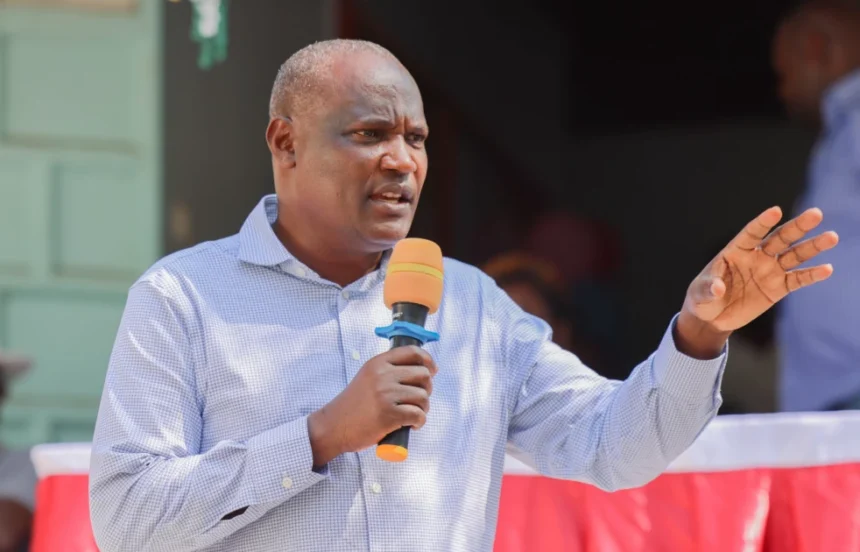Treasury Cabinet Secretary John Mbadi has further spoken about controversial remarks he made last week that appeared to cast doubt on the sustainability of the government’s free education programme, saying his comments were directed at Parliament, not the public.
Mbadi now claims that he had been misquoted, stressing that his message was an appeal to lawmakers to increase funding for education rather than a warning to parents about looming school fees.
“I was speaking to policymakers. I was speaking to members of Parliament who approve the budget,” the CS told a rally in Nyatike, Migori County, on Saturday. “I told them we must enhance the budget for capitation so that every child receives 22,000 shillings. What we have in the budget today is less than 22,000.”
While he acknowledged the government’s fiscal challenges, Mbadi, however, said parents should not be alarmed.
“If you want me to lie to Kenyans, I am not ready to lie to Kenyans,” he said. “We must budget so that every child is supported as the policy says.”
His remarks come amid growing concern over a reduction in government capitation per student from Ksh.22,000 to about Ksh.17,000 annually, which some education stakeholders say could burden public schools and affect the quality of learning.
Mbadi says the funding gap is not a new issue, attributing it to systemic challenges that predate the current administration.
“This has been happening from the time of [former President Uhuru Kenyatta]. We don’t want schools to accumulate debts the same way universities have been accumulating debts,” he said.
He urged MPs to work closely with the Treasury to ensure education remains fully funded: “We must work with Parliament to make sure that we have enough money to run our schools.”
The finance minister assured parents that the government remains committed to free basic education and has no intention of shifting the cost burden to them.
“Don’t create panic among parents. Parents are not supposed to pay fees, and we are not going to allow parents to pay fees. We will make money available to support them. That is what I said,” he said.
Mbadi first attracted criticism when he appeared before a Parliamentary committee on Thursday and said that the financial burden of free education is too heavy for the State to sustain, intimating that parents will soon be forced to dig deeper into their pockets.
Then, in a Friday address to clarify his earlier position, Mbadi maintained that while education remains a key government priority, the current financial muscle cannot meet the full cost per student — a reality he accuses some leaders of conveniently ignoring.
President William Ruto on Sunday reiterated his government’s commitment to ensuring free, accessible, and quality education for all Kenyan children, describing education as “the greatest gift a society can give to its young people.”
“I assure you that the access and quality of education cannot be compromised,” the President stated during a church service at ACK St Martin’s Light Industries Church in Kariobangi, Nairobi, adding that his government was committed to making education not only affordable and inclusive, but also of good quality and relevant to Kenya’s development needs.



